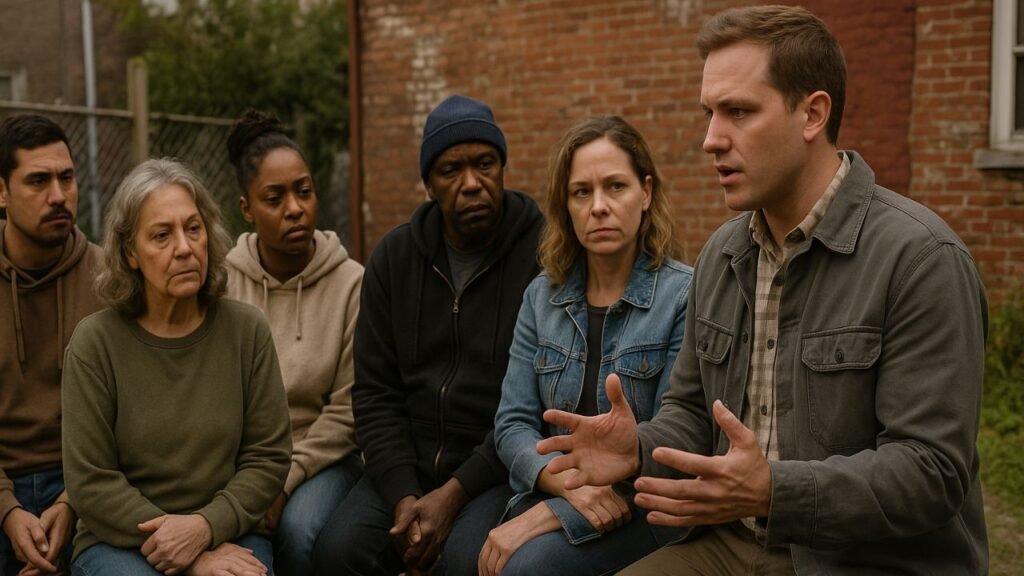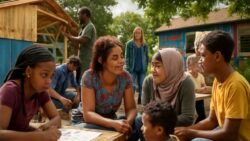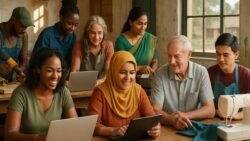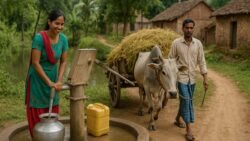Local Communities Empowerment – Working with local communities to address pressing issues such as poverty, unemployment, and social injustice has become a critical mission for educational institutions like Marian Institute. The institute actively encourages students to engage in community service and social outreach programs, ensuring that learning extends beyond classroom walls. By partnering with local organizations and government bodies, Marian Institute creates opportunities for students to participate in projects that directly impact underprivileged communities. These initiatives range from skill development workshops and literacy campaigns to small-scale entrepreneurship support, providing tangible solutions to poverty and unemployment. Research shows that community engagement not only enhances societal welfare but also instills leadership, empathy, and problem-solving skills in students, preparing them for responsible citizenship (UN Social Development). By integrating social justice principles into its programs, Marian Institute ensures that students are equipped to challenge systemic inequalities while fostering sustainable change in their surrounding communities.

Empowering Communities Through Education and Skill Development
Education is a powerful tool to combat poverty and social inequality, and institutions like Marian Institute play a pivotal role in leveraging this potential. The institute conducts community-focused training programs that equip local youth and adults with vocational skills, digital literacy, and financial management knowledge. By providing skill development initiatives, Marian Institute helps bridge the gap between educational attainment and employment opportunities, directly addressing unemployment issues in the region. Students participating in these programs gain practical experience in project planning and execution while contributing to societal growth. According to the World Bank, skill-building programs significantly enhance employability and income-generating potential among marginalized groups (World Bank on Skills Development). Moreover, Marian Institute collaborates with local NGOs to establish training centers and workshops, ensuring that education reaches those who need it the most. This comprehensive approach creates a cycle of empowerment, where communities gain the skills necessary to improve livelihoods, reduce dependency, and break the intergenerational cycle of poverty.
 Education for All – UFDP’s Mission to Build Learning Spaces in Underprivileged Communities
Education for All – UFDP’s Mission to Build Learning Spaces in Underprivileged Communities
Addressing Unemployment Through Community Engagement
Tackling unemployment requires innovative solutions that align educational expertise with local economic needs. Marian Institute facilitates community projects that provide both short-term employment opportunities and long-term pathways to self-sufficiency. Students work alongside community members to launch micro-enterprises, craft cooperatives, and local service initiatives that generate income while addressing social challenges. These collaborative efforts not only reduce unemployment but also instill confidence, leadership, and a sense of purpose among participants. Studies indicate that community-based employment programs have a measurable impact on reducing local unemployment rates and enhancing social cohesion (ILO on Employment Promotion). By embedding practical work experience into academic curricula, Marian Institute ensures that students are not only academically proficient but also socially conscious and professionally skilled. Such engagement fosters an ecosystem where education, employment, and social welfare intersect, allowing both students and community members to benefit mutually from sustained development programs.
Promoting Social Justice and Equity
Social injustice, often intertwined with poverty and unemployment, remains a significant barrier to community development. Marian Institute encourages students to participate in campaigns and advocacy programs that address inequality, gender bias, and access to essential services. Through seminars, workshops, and fieldwork, students learn to identify systemic barriers and implement community-driven solutions. According to the United Nations, promoting social equity and human rights is essential for achieving sustainable development goals (UN Sustainable Development Goals). By equipping students with the knowledge and tools to challenge social injustices, Marian Institute nurtures a generation of socially responsible leaders who advocate for fairness and inclusivity. These programs also help marginalized populations gain a voice, empowering them to participate actively in decision-making processes that affect their lives and communities. Engaging students in social justice initiatives thus bridges the gap between theoretical knowledge and practical application, fostering a culture of empathy and civic responsibility.
 Vocational Training, Digital Literacy, and Life Skills Programs Led by UFDP Across Regions
Vocational Training, Digital Literacy, and Life Skills Programs Led by UFDP Across Regions
Building Sustainable Impact Through Collaborative Partnerships
Sustainable community development relies on long-term strategies and collaborative partnerships. Marian Institute actively partners with local government agencies, NGOs, and corporate social responsibility programs to ensure the effectiveness and continuity of its initiatives. By creating a network of stakeholders, the institute can pool resources, share expertise, and scale successful models to reach a larger population. Collaborative partnerships also provide students with mentorship opportunities, real-world exposure, and insights into multi-sectoral problem-solving. Research highlights that multi-stakeholder collaborations enhance the efficiency and impact of social interventions (UNESCO on Collaboration for Sustainable Development). Through sustained engagement, Marian Institute ensures that community projects are not only immediate relief efforts but also long-term solutions that empower local populations, reduce unemployment, and promote equity. By fostering an environment where education, community service, and social justice intersect, Marian Institute demonstrates how academic institutions can be catalysts for transformative change within society.


